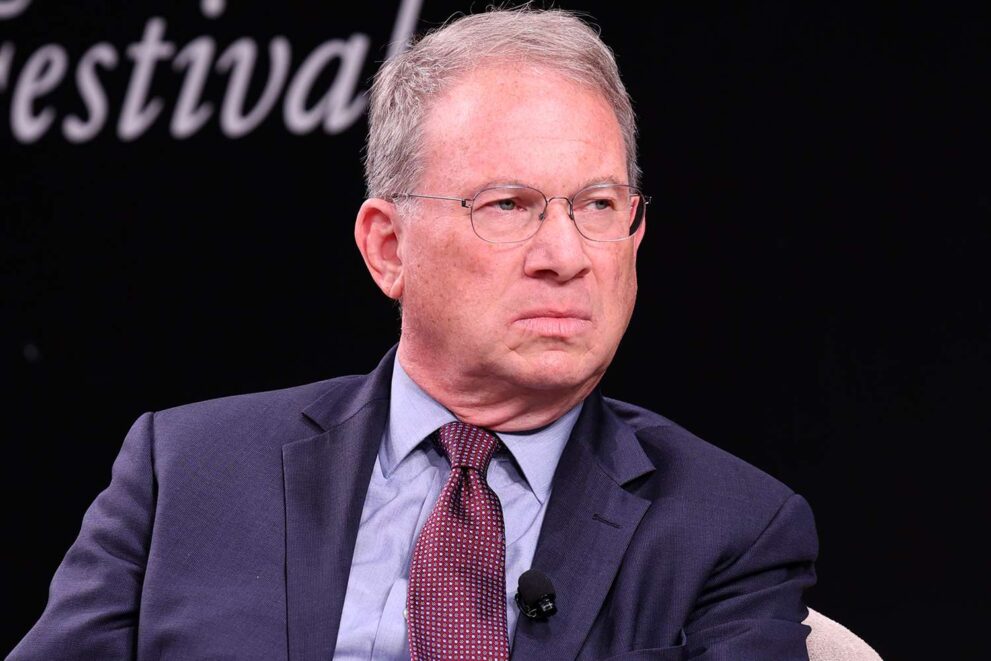When Jeffrey Goldberg published a bombshell story outlining how some of the most senior U.S. officials had mistakenly shared sensitive information with him, he obtained the biggest scoop of the year. The Atlantic editor also became the prime target for every senior Trump administration official in Washington.
In the last few days, he’s been called a “loser” and a “sleazebag” by President Trump, as well as a liar and “scum” by U.S. National Security Advisor Michael Waltz, who appeared to have mistakenly added Goldberg to a group chat earlier this month.
Before he became a political lightning rod, however, Goldberg watched on his phone as cabinet officials—including U.S. Secretary of State Marco Rubio, Secretary of Defence Pete Hegseth, CIA Director John Ratcliffe, and Director of National Intelligence Tulsi Gabbard—discussed sensitive details, timings, and targets of an upcoming military operation in Yemen. They did not seem to notice his presence.
Goldberg recounted how it all began with a message on his phone, via the Signal messaging app, which is popular among journalists and government officials for its encrypted communications. An account under Waltz’s name had messaged him, which he initially thought was a hoax.
“I wish there was a Le Carré quality here, you know,” Goldberg said, referring to the late British spy novelist. “But he asked me to talk. I said yes. And next thing I know, I’m in this very strange chat group with the national security leadership of the United States.”
Waltz later took responsibility for mistakenly adding Goldberg to the group chat, suggesting that he had meant to invite someone else. He insisted that he had never met Goldberg, even claiming, “I wouldn’t know him if I bumped into him, if I saw him in a police lineup.”
Goldberg, however, confirmed that the two had met several times but declined to provide details about their relationship.
Goldberg pointed out that to reach someone on Signal, you must have their contact information. He noted that Waltz must have had Goldberg’s phone number. Waltz has asked Elon Musk to investigate the incident, which Goldberg ridiculed.
“Really, you’re going to put Elon Musk onto the question of how somebody’s phone number ends up in someone’s phone? I mean you know, most 8-year-olds could figure it out,” he said.
The larger question, according to Goldberg, was whether national security officials should be using Signal on their phones for such sensitive discussions.
In Goldberg’s Monday Atlantic story, he initially withheld some details about the military operation in Yemen. But after Trump administration officials denied the claims, Goldberg decided to release the full text messages, which included operational specifics.
“If Pete Hegseth, the secretary of defense, is texting me, telling me the attack was about to be launched on Yemen—telling me what kind of aircraft are going to be used, what kind of weapons are going to be used, and when the bombs are going to fall— that seems sensitive information, war-planning information to me,” Goldberg said.
Trump has supported Hegseth and dismissed Goldberg as a “sleazebag.” Meanwhile, the White House attempted to argue that the information shared wasn’t technically “war planning.”
Goldberg was unfazed by the attacks, stating, “So I’m sitting there, minding my own business. They invite me into this Signal chat and now they’re attacking me as a sleazebag, I don’t even get it.”
Goldberg pointed out the discrepancy in accountability for officials, remarking that if lower-ranking personnel mishandled sensitive information, they would be fired and prosecuted. Yet, higher-ups in the Trump administration seemed to face no consequences.
Goldberg eventually decided to leave the group chat, noting that some journalists questioned why he chose to exit voluntarily. He explained that it was the responsible thing to do, given the potential legal and ethical implications of the situation.
As this controversy continues, it remains to be seen how the White House and Congress will respond, with some lawmakers demanding an investigation.








